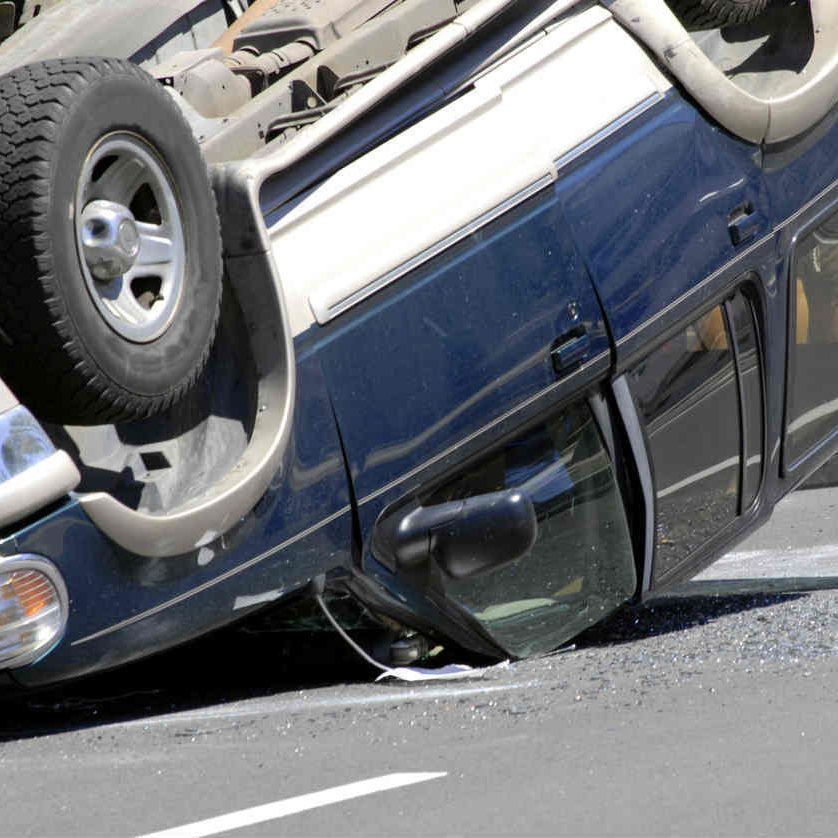Rollover accidents in Missouri are dangerous and often preventable. By understanding their causes, drivers can take precautions.
Rollover accidents are among the most dangerous types of vehicle crashes, often resulting in severe injuries or fatalities. In Missouri, these accidents occur due to various factors, including driver behavior, road conditions, and vehicle design. Understanding the causes of rollover crashes and the legal options available to victims can help improve safety and ensure those affected receive the compensation they deserve.
If you or a loved one has been injured in a rollover accident due to another driver’s negligence or unsafe road conditions, consult The Hoffmann Law Firm, L.L.C. for a free consultation to discuss your legal rights and options.
FREE CASE EVALUATION
What is a Rollover Accident?
A rollover accident occurs when a vehicle flips onto its side or roof. Rollovers can involve a single car or multiple vehicles and are particularly deadly due to the risk of ejections, roof collapses, and high-impact trauma.
Common Causes of Rollover Accidents in Missouri
Several factors contribute to rollover accidents, with some of the most common including:
High-Speed Driving
Speeding significantly increases the likelihood of a rollover crash. According to the National Highway Traffic Safety Administration (NHTSA), nearly 40% of fatal rollover crashes involve excessive speed (NHTSA).
Vehicle Type and Design
Specific vehicles are more prone to rollovers due to their higher center of gravity. Unlike lower-profile cars, SUVs, pickup trucks, and vans are likelier to tip over in a crash (Insurance Institute for Highway Safety).
Sharp Turns and Overcorrections
Sudden steering movements, such as overcorrecting after veering off the road, can destabilize a vehicle and lead to a rollover. This is especially common on highways and rural roads with higher speeds.
Road Conditions and Hazards
- Uneven Pavement – Sudden elevation or soft shoulder changes can cause a vehicle to tip.
- Potholes – Deep potholes can disrupt tire traction and balance.
- Wet or Icy Roads – Slippery surfaces increase the risk of losing control.
Driver Behavior and Impairment
- Distracted Driving – Texting, adjusting the radio, or other distractions can lead to sudden maneuvers that cause rollovers (CDC).
- Drunk Driving – Alcohol impairment reduces reaction times and coordination, contributing to a higher rollover risk (National Safety Council).
- Drowsy Driving – Fatigue-related accidents often involve delayed reactions, increasing the likelihood of rollovers.
Multi-Vehicle Collisions
Rollover accidents can occur when one vehicle is hit from the side, causing it to tip over. T-bone collisions at intersections frequently lead to rollovers, particularly for top-heavy vehicles.
Cargo Load and Weight Distribution
Improperly loaded cargo can affect stability in commercial trucks and large vehicles. Overloading or unevenly distributing weight increases the risk of tipping over during turns or sudden stops (Federal Motor Carrier Safety Administration).
Injuries Associated with Rollover Accidents
Rollover accidents often result in severe or fatal injuries, including:
- Traumatic brain injuries (TBI)
- Spinal cord injuries and paralysis
- Broken bones and fractures
- Internal organ damage
- Severe lacerations and burns
Missouri Laws and Legal Options for Rollover Accident Victims
Missouri follows a comparative fault system, meaning victims may still recover compensation even if they were partially at fault (Missouri Revised Statutes, Section 537.765). Victims of rollover accidents may seek damages for:
- Medical expenses (past, present, and future)
- Lost wages and reduced earning capacity
- Pain and suffering
- Property damage
- Wrongful death claims (if the accident results in a fatality)

Steps to Take After a Rollover Accident
If you are involved in a rollover accident, follow these steps to protect yourself legally and medically:
- Call 911 and Seek Medical Attention – Some injuries may not be immediately apparent even if you feel fine.
- Document the Scene – Take photos of the accident, vehicle damage, and road conditions.
- Collect Witness Information – Statements from witnesses can help establish liability.
- Report the Accident – Notify your insurance provider, but avoid giving recorded statements without legal advice.
- Contact a Personal Injury Attorney – A lawyer can help determine liability, negotiate with insurers, and seek fair compensation.
Contact The Hoffmann Law Firm, L.L.C Today
Rollover accidents in Missouri are dangerous and often preventable. By understanding their causes, drivers can take precautions to reduce risks. If you or a loved one has been injured in a rollover accident due to another driver’s negligence or unsafe road conditions, consult The Hoffmann Law Firm, L.L.C. for a free consultation to discuss your legal rights and options.

